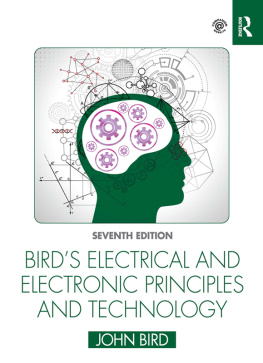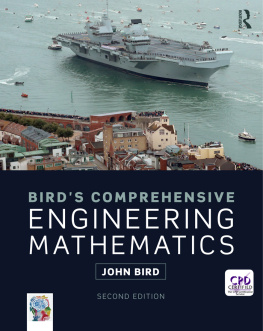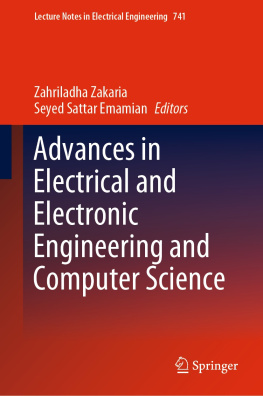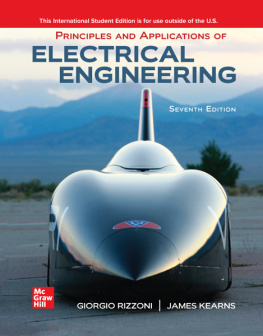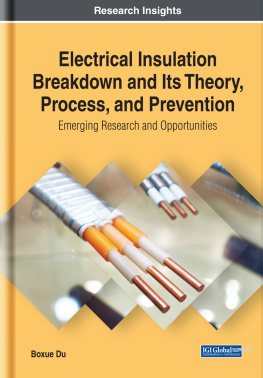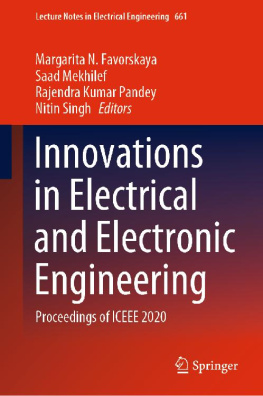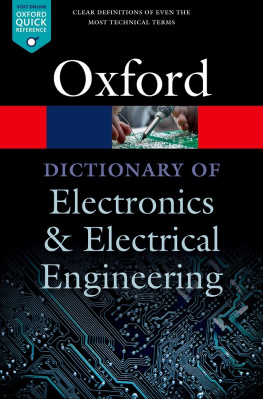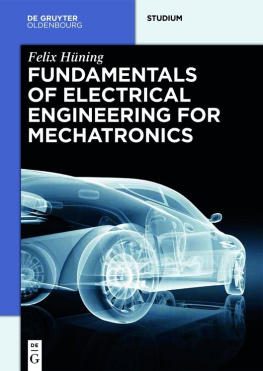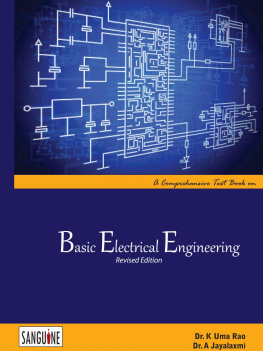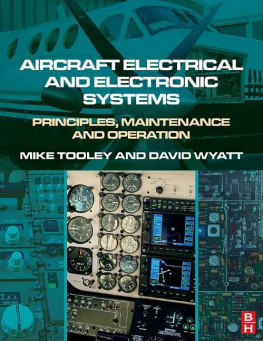Contents

Bird's Electrical and Electronic Principles and Technology
What skills are needed for a career in electrical and electronic engineering?
When you decide to become an electrical or electronic engineer, you're committing yourself to a profession that involves developing, designing, testing and supervising the manufacturing of electrical devices and equipment, including navigation systems, electric motors and power generation equipment. Therefore, to be able to handle such complex concepts and theories, and understand how to apply them to real-life projects, you need to possess a unique and tailored skillset. Indeed, it's no secret that a high proportion of engineering students drop out or change course, with a lack of preparedness often cited as the biggest reason for this unusually high attrition rate.
So, to see if you have what it takes to stay the course and develop a promising career in the field, here are the top 10 electrical and electronic engineering skills that you will need.
1. Problem-Solving Skills
Regardless of their discipline, engineers are, at their core, problem-solvers. This is particularly true in electrical and electronic engineering, where you are often required to think logically and apply a particular rule or concept to a problem in order to solve it.
2. Basic Circuit Knowledge
Electrical design can become an extraordinarily complex topic, especially where large installations are concerned (such as energy grids), or even within highly advanced pieces of small hardware, such as those used in smartphones. Therefore, if you are to have any hopes of getting to grips with it all, you need to first have a solid understanding of basic circuit design.

Sunshine Seeds/Shutterstock.com
3. Enthusiasm for Learning
Although it is an essential and unavoidable step, having a degree or a high qualification is not the end of the educational road for an electrical/electronic engineer; in fact, it is just the beginning of your active learning journey. Much of this is borne out of necessity. Electrical and electronic engineering is one of the fastest evolving and fiercely competitive engineering fields, so you will need to be constantly up to date (for example, with IEE wiring regs, and particularly if you work in the product design and manufacturing sector).
4. Communication Skills
There is barely a profession in the world where the ability to communicate is not important, and electrical and electronic engineering is no different. Whether it's understanding the needs and requirements of a client, working within project teams to develop or improve a piece of hardware/software, or working with other departments and stakeholders, communication skills are an essential part of the role.
5. Organisational Skills
The ability to organise and manage your time is important for an electrical/electronic engineer, as much of your work will likely be time-sensitive or project-based, regardless of which area of engineering you specialise in.
6. Numerical Skills
A common issue for electrical and electronic engineering students is that their mathematical background is not strong enough. Therefore, it is important to focus on mathematics at college or university. Understanding engineering is extremely difficult without a good knowledge of mathematics.
7. Work Ethic
A strong work ethic is another hugely important part of a successful engineer's makeup. Therefore, you must be determined and willing to work until you find a solution to whatever technical problems you encounter in your role.
8. Critical Thinking Skills
Critical thinking is a broad skill that can be applied to a wide array of situations, but it is just as important in electrical and electronic engineering. Possessing the ability to approach things differently or take a different view to the norm can make a big difference when you are trying to achieve a certain goal with your project.
9. Creative Thinking Skills
Engineers are not just problem-solvers - they are pioneers. Whether it's on a grand scale or a simple one, the solutions they provide change the way we live; therefore, to be able to explore and implement such radical ideas, you need to be able to think outside the box'. This is especially true in the commercial sector, where electronics giants are constantly competing to develop new and exciting technologies. You can have all the knowledge in the world, but if you don't know how to be creative and explore new possibilities with it, then you're going to be left behind.
10. Programming Skills
Although the importance of programming is higher in some areas of electrical and electronic engineering than others, it is still a very useful skill to possess, particularly when working with low-level embedded systems or when analysing data.

Gorodenkoff/Shutterstock.com
As you can see, the career of an electrical/electronic engineer is demanding. Apart from possessing the requisite technical knowledge, it is also mandatory for you to incorporate other key soft skills into your employability repertoire, such as decision-making, leadership and attention to detail. The rewards are high though, with electrical and electronic engineering one of the highest-paying sectors in the industry.
Hopefully, Bird's Electrical and Electronic Principles and Technology will help you on your first important steps in a long career in electrical and/or electronic engineering.
There is a lot to learn; stay with it - it will be worth it.
Bird's Electrical and Electronic Principles and Technology
Now in its seventh edition, Bird's Electrical and Electronic Principles and Technology introduces and covers theory through detailed examples and laboratory experiments, enabling students to gain knowledge required by technicians in fields such as engineering, electronics, and telecommunications. This edition includes several new sections, including glass batteries, climate change, the future of electricity production, and discussions concerning everyday aspects of electricity, such as watts and lumens, electrical safety, AC vs DC, and trending technologies.
The extensive and thorough topic coverage makes this a great text for a range of level 2 and 3 engineering courses, which has helped thousands of students succeed in their exams. It is also suitable for BTEC First, National and Diploma syllabuses, City \& Guilds Technician Certificate and Diploma syllabuses, and Foundation Degrees in engineering.
Its companion website at www.routledge.com/cw/bird provides resources for both students and lecturers, including full solutions for all 900 further questions, lists of essential formulae, multiple-choice tests and illustrations, as well as full solutions to revision tests for course instructors.
John Bird, BSc (Hons), CEng, CMath, CSci, FIMA, FIET, FCollT, is the former Head of Applied Electronics in the Faculty of Technology at Highbury College, Portsmouth, UK. More recently, he has combined freelance lecturing at the University of Portsmouth, with Examiner responsibilities for Advanced Mathematics with City & Guilds and examining for the International Baccalaureate Organisation. He has over 45 years' experience of successfully teaching, lecturing, instructing, training, educating, and planning trainee engineers study programmes. He is the author of 146 textbooks on engineering, science, and mathematical subjects, with worldwide sales of over one million copies. He is a chartered engineer, a chartered mathematician, a chartered scientist and a Fellow of three professional institutions. He has recently retired from lecturing at the Royal Navy's Defence College of Marine Engineering in the Defence College of Technical Training at H.M.S. Sultan, Gosport, Hampshire, UK, one of the largest engineering training establishments in Europe.

